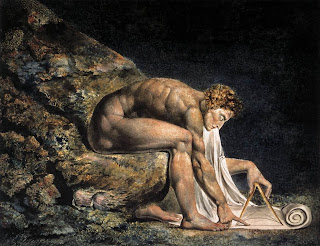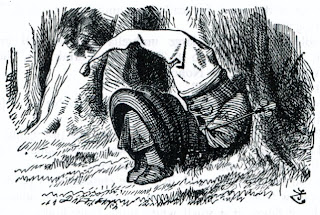Now I see him, now I don’t: a May-time mystery for Christmas

I wish I could open, “on a mid-December afternoon, in a grey and grainy light...” But I can’t. It happened on one of this year’s bright May mornings. And I wish I could say I was feeling particularly whimsical, romantic, suggestible or dreamy. But, tell the truth, in a grim mood, I was trudging to meet an erstwhile colleague to talk about my difficult relationship with a third party in another organisation, a dim-witted brute with an over-partiality for red tape and tight trousers. So, heading towards Newgate Street, I go through the rose garden in the ruined nave of Christ Church. On the other side of the road, a man is sitting on a low wooden stool, painting. He is in early middle age, robust and square jawed. He wears wide leather boots, the colour of fresh-shelled chestnuts, with navy trousers tucked into them; a big blue canvas shirt, a tan leather waistcoat and a black leather pillbox hat. I cross the road. He looks up at me – piercing dark eyes – and I smile. He doesn’t. Passing






